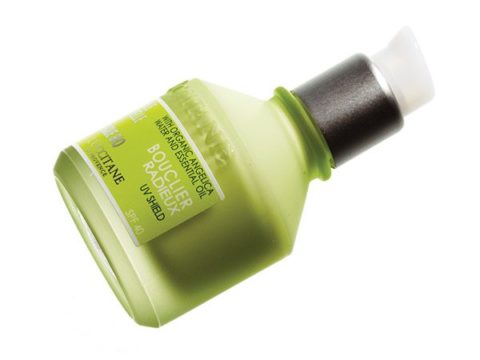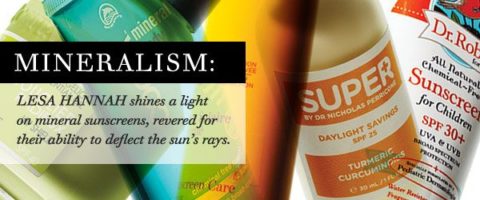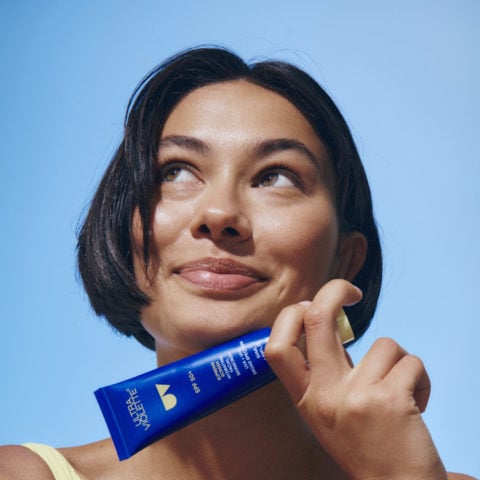Mineral sunscreens: The new SPF rockstars

Those of us who take pride in protecting our skin from the irreversible damage of UV rays reach for a bottle of sunscreen as instinctually as we would a toothbrush. It doesn’t matter which form: cream, lotion or spray. Fearful of coming out of the sun looking like Donatella Versace, we apply it generously and with vigour, confident that our skin’s health is being preserved. But it turns out there’s more to choosing a sunscreen than simply considering the spf number on the bottle. It’s becoming clear that mineral (also known as physical) formulas—which use zinc oxide and titanium dioxide to physically deflect rays—are winning many people over.
See our top sun care picks now! »
Dr. Sheldon Pinnell, founder of SkinCeuticals and chief emeritus of dermatology at Duke University, is one of the converted. As someone who has studied sun protection and photo-aging for the past five decades, he favours zinc oxide in particular because “it has a long history of safety, and its spectrum of protection against UV is broad and is as strong in the UVA region as chemical sunscreens.” And unlike its chemical counterparts, it’s far less likely to cause irritation or an allergic reaction. The other benefits, from a user’s point of view, are that it’s effective immediately upon application and “if not removed by rubbing or wiping, does not need to be regularly applied,” says Dr. Pinnell. Chemical filters, on the other hand, break down after a few hours, and rather than deflect uv rays, they absorb them. Since the rays have been shown to get into the skin, you’re essentially creating an open-door policy for all the free radicals that are generated when skin is exposed to sun.
Yet for all its advantages, zinc oxide has one strike against it: its texture. Often thick and chalky, it requires some fancy formulation footwork to make it appealing. A man on a two-year mission, Alain Ménard, co-founder of Green Beaver, has achieved this fine balance with his certified-organic SPF 30 sunscreen. Ménard and his team wanted to create a zinc-only formula because he believed it would offer broader UVA/UVB protection than when combined with titanium dioxide. With the support of a grant from the National Research Council of Canada, he was able to expand his lab and hire a chemist and a technician.
Yet even with the added resources, the task was a challenge. They investigated several suppliers before finding one in Australia that had figured out how to grind zinc down into a fine powder. “When it comes to suncare, they tend to be one step ahead,” says Ménard. He also added organic sunflower seed oil, to make it waterproof, and organic raspberry seed oil, which is rich in vitamin E and known for its ability to disarm free radicals. “Let’s not forget, zinc is really good for healing,” says Ménard, noting that this skin-care hero is used in diaper creams to heal rashes. “It’s a crazy ingredient.” He means that in the best way possible.








